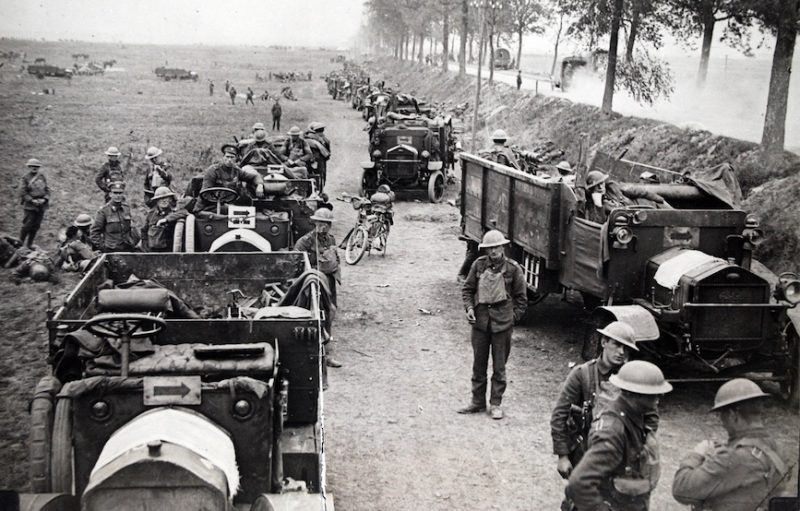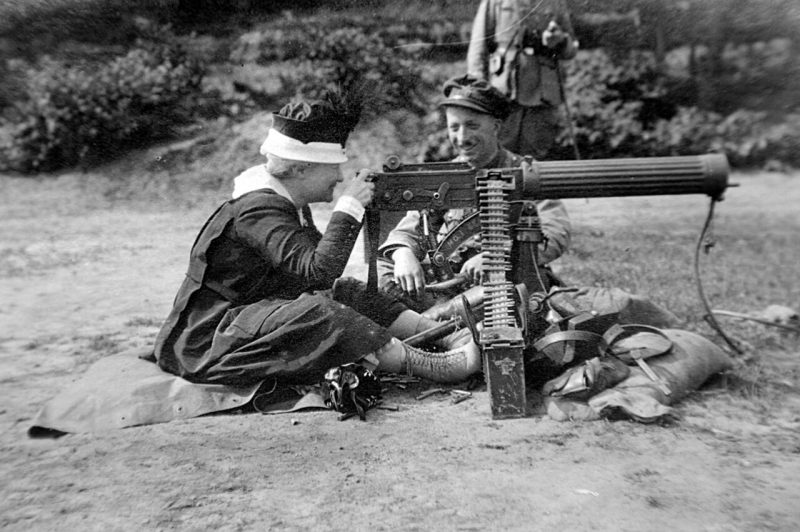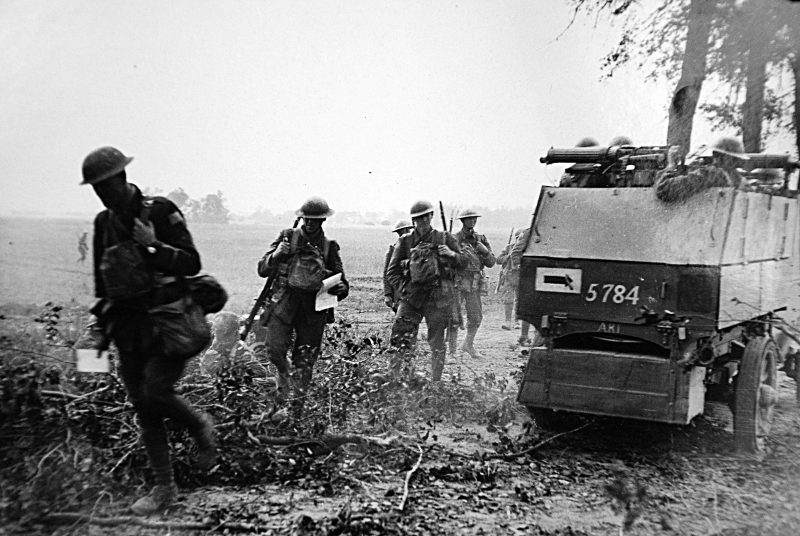#149 From Yukon to the Western Front
First published July 11, 2017
REVIEW: From the Klondike to Berlin: The Yukon in World War I.
by Michael Gates
Madeira Park: Harbour Publishing, 2017.
$24.95 / 978-1-55017-776-3
Reviewed by Jim Wood
The outpouring of centenary books about aspects of Canada’s involvement in the Great War, 1914-1918, continues with From the Klondike to Berlin: The Yukon in World War I, from Michael Gates and Harbour Publishing.
The Yukon’s two units, both part of 2nd Canadian Motor Machine Gun Brigade, trained in Victoria and Vancouver before distinguishing themselves in this most devastating of wars.
Reviewer Jim Wood of Okanagan College notes that the Yukon poet, Robert Service, an ambulance driver in the war, “was targeted by Canada’s chief censor” for portraying the devastation and suffering of war. – Ed.
*

From the Klondike to Berlin presents a narrative history of the men and women who lived in the Yukon, then an isolated Canadian mining outpost, when war broke out in 1914. Michael Gates has highlighted their patriotic, indomitable spirit, born during the Gold Rush of 1898 and continued by the hardy folk who answered the call to serve the Empire.
One recruit summed up the northern spirit among his fellow soldiers: “I am going with Yukoners because I believe no part of the world can produce men more accustomed to all-round frontier experiences…in the face of all kinds of difficulties which try every man’s resourcefulness to the utmost” (p. 58).

At the centre of the region’s war efforts were two locally-raised units: Joe Boyle’s Yukon Machine Gun Battery and the Yukon Infantry Company, recruited and raised by George Black, Yukon’s territorial commissioner. Boyle’s unit trained at Hastings Park in Vancouver and Black’s infantry group at Victoria’s Willow Camp. Upon being sent overseas, both units were merged into the 2nd Canadian Motor Machine Gun Brigade.
Gates has featured the Black family, George, Martha, and their son Lyman, as the epitome of a Yukon family at war, displaying what poet Robert Service depicts as “The Law of the North” where men and women are “the strong and the sane,” “girt for the combat,” and “grit to the core” (Songs of a Sourdough, 1957, 9).

George recruited 255 men for the Yukon Infantry Company, qualified in Victoria to become a captain, and went on the lead his men in the battles of Amiens and the Hundred Days. The 2nd Canadian Motor Machine Gun Brigade served with the Allied occupation force in Berlin after the Armistice, and following their departure for Canada, Black stayed on to act as defence counsel for several British Columbia soldiers who had been charged in the Kinmel Park demobilization riots in Wales in 1919.
George and Martha opened Government House to organizations such as the Imperial Order Daughters of the Empire for fundraising and assembling comfort packages for the soldiers.
Martha Black was well known for having climbed the Chilkoot Trail of 1898 while pregnant and going on to create a thriving sawmill business. During the war she led patriotic fundraising campaigns in Dawson, continuing her work in England with hospital visits, letter writing, and administration of the Yukon Comfort Fund.

Their son Lyman Black joined up as a student from Dawson Public School, went on to be promoted to lieutenant, and was awarded the Military Cross for conspicuous gallantry near Amiens in 1918.
Gates includes wide-ranging coverage of war experiences of Yukon soldiers, including the exhaustion and high casualty rate suffered by Boyle’s Machine Gun Battery in action at the Somme, Vimy Ridge, Hill 70, Passchendaele, Amiens, and the Hundred Days. Boyle went on to assist the Romanian royal family by transporting the Crown jewels on a treacherous 1300-kilometre journey through Bolshevik Russia.

Canadian poet Robert Service’s work as an ambulance driver, journalist, and intelligence officer is shown by Gates to have frequently portrayed the devastation and suffering of war, with the result that his writing was targeted by Canada’s chief censor.
Yukon history has been well documented for the Trail of ’98 and the Alaska Highway; Gates, however, explores new territory in this history of the region’s participation in the First World War, using local and archival sources to reveal the experiences of individuals serving on both the home front and overseas, documenting the impact on Canadian families of an increasingly dire manpower situation in the later stages of the First World War.
From the Klondike to Berlin concentrates on Yukon men and women who took part in the Great War, fighting in or supporting the war with a uniqueness of character and fortitude that is the proud heritage of Canada’s north country.
 Nearly one thousand men of Yukon’s population of about five thousand enlisted, a rate much higher than in the rest of Canada, and fundraising campaigns garnered a similarly patriotic response.
Nearly one thousand men of Yukon’s population of about five thousand enlisted, a rate much higher than in the rest of Canada, and fundraising campaigns garnered a similarly patriotic response.
Where the average Canadian donation to the war was one dollar per capita, Yukoners raised donations at twelve times that rate. Likewise, with Yukon’s loss of about 85 men killed of the thousand who served, memorialization following the war years was equally impressive.
Michael Gates has captured that spirit, built on the challenges of northern living and carried forward to the war effort, patriotic fundraising, and recognition of the sacrifices made.
*

Dr. Jim Wood has taught history at several post-secondary institutions across Canada, including Trent University, the Royal Military College of Canada, Kwantlen Polytechnic University, UBC Okanagan, and the University of Victoria. In addition to articles published in Canadian Military History, The Journal of Military History, The American Review of Canadian Studies, and BC Studies, his book publications include We Move Only Forward: Canada, the United States, and the First Special Service Force, 1942-44 (Vanwell Publishing, 2006) and Militia Myths: Ideas of the Canadian Citizen Soldier, 1896-1921 (UBC Press, 2010). He currently teaches history at Okanagan College.
*
The Ormsby Review. More Readers. More Reviews. More Often.
Reviews Editor: Richard Mackie
Reviews Publisher: Alan Twigg
The Ormsby Review is a new journal for serious coverage of B.C. literature and other arts. It hosted by Simon Fraser University. The Advisory Board consists of Jean Barman, Robin Fisher, Cole Harris, Wade Davis, Hugh Johnston, Patricia Roy, David Stouck, and Graeme Wynn.
